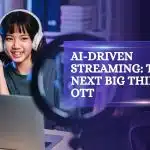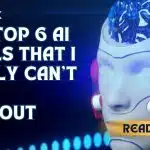Will AI Creativity Artificial Intelligence (AI) is making waves in the realms of creativity, generating artwork, music, literature, and even cinematic scripts. With tools like MidJourney, ChatGPT, and DALL-E becoming mainstream, the question of whether AI creativity will outpace human imagination has sparked lively debate. While AI can assist and augment human creativity, can it truly surpass the boundless depths of human imagination? Let’s explore.
The Landscape of AI Creativity
AI has transformed creative processes by analyzing massive datasets to produce novel outputs. For instance, tools like OpenAI’s DALL-E can generate detailed images based on text prompts, while ChatGPT drafts stories or essays within seconds. These advancements enable artists, writers, and designers to push boundaries, experimenting in ways that were once unimaginable.
AI also democratizes creativity, empowering individuals without technical or artistic expertise to create high-quality outputs. From generating visual art to composing music, AI tools break barriers and open doors to innovative expressions.
But is this creativity, or is it mimicry of human-made patterns?

The Nature of Imagination: A Human Forte
Imagination goes beyond pattern recognition and replication; it thrives on abstraction, emotions, and a deep understanding of context. Human imagination is shaped by lived experiences, cultural nuances, and the ability to connect seemingly unrelated ideas in profound ways.
For example, J.K. Rowling’s Harry Potter series is a product of personal experiences, inspirations, and cultural myths woven into a magical universe. While AI might replicate Rowling’s style, it lacks the emotional depth and unique lived context that defines her work.
Strengths of AI in Creativity
AI excels in areas where structured creativity is key:
- Speed and Efficiency: AI can generate countless variations of a concept in seconds.
- Collaboration: AI acts as a brainstorming partner, offering new angles and perspectives.
- Data-Driven Innovation: By analyzing trends and user preferences, AI can suggest ideas with a higher likelihood of resonance.
For instance, filmmakers use AI to predict box-office success by analyzing scripts, and musicians experiment with AI-generated compositions to enhance their work.
Limitations of AI Creativity
Despite its capabilities, AI faces inherent limitations:
- Lack of Original Thought: AI cannot originate ideas independently; it relies on pre-existing data.
- Absence of Emotional Context: AI struggles to infuse authentic emotion or empathy into its outputs.
- Ethical Concerns: AI creations often blur the line between inspiration and plagiarism, raising ethical questions.
Will AI Ever Surpass Human Imagination?
While AI may outperform humans in efficiency and scalability, surpassing human imagination is a different challenge. Creativity is deeply tied to the human experience — our emotions, struggles, dreams, and aspirations. It’s this intrinsic humanity that enables us to produce works that resonate on a soul-deep level.
AI can complement human creativity, offering tools to enhance and streamline the creative process, but it is unlikely to replace the uniquely human ability to dream beyond what is possible. Imagination isn’t confined by datasets; it is boundless and fueled by curiosity and the unknown.

A Collaborative Future
Rather than viewing AI as a competitor, it’s more productive to see it as a collaborator. Artists and innovators can harness AI to amplify their imagination, turning ambitious visions into reality. This synergy can unlock creative potential on a scale previously unimaginable.
AI creativity is impressive and transformative, but it’s not a substitute for human imagination. Instead of asking whether AI will outpace human creativity, perhaps the better question is how we can combine the strengths of both to create a richer, more innovative world.
In this collaborative future, human imagination remains the driving force, with AI as a powerful ally, expanding the horizons of what we can achieve together.




